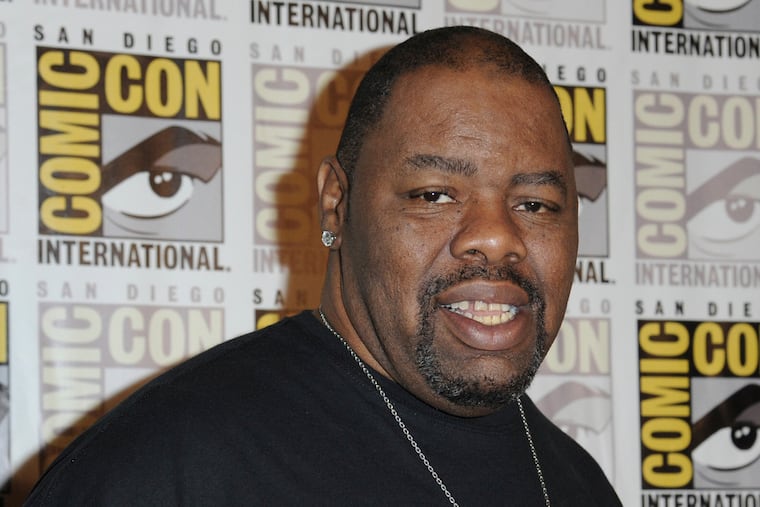Biz Markie captured the joyful side of Black reality | Solomon Jones
Reducing him to the “Clown Prince of Hip-Hop,” as he was sometimes called, ignores his true impact as a leader who empowered Black people.

When I learned that legendary beatboxer and rapper Biz Markie had died at 57 after battling complications from diabetes, I was instantly transported to the early 1990s. It was a time of hopefulness and uncertainty in the Black community — a time when we didn’t know whether to party or to mourn.
Biz personified a musical era that rose alongside the excesses that came with crack cocaine. Much like today, we saw high murder rates and abject poverty in cities like New York and Philadelphia, and brash antiheroes rose up from the chaos. Some were drug dealers like Philadelphia’s Aaron Jones, who ran the Junior Black Mafia. Others were athletes like Hank Gathers, who succumbed to a heart condition before his basketball talent could fully blossom. Then there were rappers like Biz Markie — artists whose rhetorical pictures captured the joyful side of Black reality.
» READ MORE: Biz Markie’s death reminds us the hip-hop generation is getting older | Elizabeth Wellington
Born Marcel Hall in Harlem, N.Y., in 1964, Biz Markie emerged from an environment that knew joy. His community had gone from the center of Black art and culture during the Harlem Renaissance in the 1920s and 1930s to a community in steep decline. By the 1980s, when Ronald Reagan became president, Harlem was a far different place than it was when Biz Markie was born. But Biz, who grew up in Long Island and cut his musical teeth in the city, took his penchant for humor and applied it to hip-hop — musical expression that quickly became the voice of a generation. With slice-of-life stories that gave listeners a glimpse into the laughter that has always helped to sustain Black people through misery, Biz helped to lead a movement to affirm Black life, even as the streets told tales of their own.
Biz Markie joined several of his contemporaries in a group called the Juice Crew, which included Roxanne Shante, MC Shan, Kool G Rap, and Big Daddy Kane. They were all linked to producer Marley Marl, and each brought their own unique talents to the table. Roxanne Shante was a master of freestyle, seemingly making rhymes up from the top of her head. Kool G Rap could turn a phrase with the best of them, while Big Daddy Kane had a smooth delivery that underscored his talents as a writer.
» READ MORE: Questlove on Black joy and bringing erased history back to life with ‘Summer of Soul’
But even as the crew cranked out hits, the neighborhood where Biz was born, like many Black communities at the time, was rapidly changing.
In their study, “Crack Cocaine and Harlem’s Health,” Beverly Watkins and Mindy Fullilove wrote that “Between 1960 and 1990 … suburbanization, economic decline, epidemic disease and municipal public policy transformed Harlem from a functional ‘urban habitat’ to a deurbanized area with a hyper-concentration of poor people with serious health problems.” That time period coincided with Biz Markie’s life, and his love of music represented a movement determined to snatch snippets of Black joy from Black misery.
In 1989, Biz Markie hit paydirt with the smash hit “Just a Friend.” In reality, he was more than that record. Biz was an entertainer, and I saw that when I looked back at a 1990 performance where he took the stage with another member of the Juice Crew, Kool G Rap, a gifted MC whose clever rhyme schemes set him apart. But Biz had this slow, deliberate flow that dared you to listen. He had an arsenal of facial expressions that forced you to focus. Biz was a comedic genius who was just fun to watch, which is why almost no one else was better onstage.
However, reducing him to the “Clown Prince of Hip-Hop,” as he was sometimes called, ignores his true impact as a leader who empowered Black people.
In 1990, the year after Yusuf Hawkins was murdered in a racist attack in a New York neighborhood called Bensonhurst, Biz joined with Kool G Rap and Polo and Big Daddy Kane for a record called “Erase Racism.” In short, Biz Markie was woke before that was a thing. He stood for his people before anyone said Black Lives Matter. He was part of an era that elevated Black people through laughter, and in doing so, he made us better.
Much like Negro spirituals were used as coded messages to escape physical bondage, and blues expressed the pain of love and life, Biz Markie’s music gave us joy. That’s why he was so much more than “Just a Friend.”